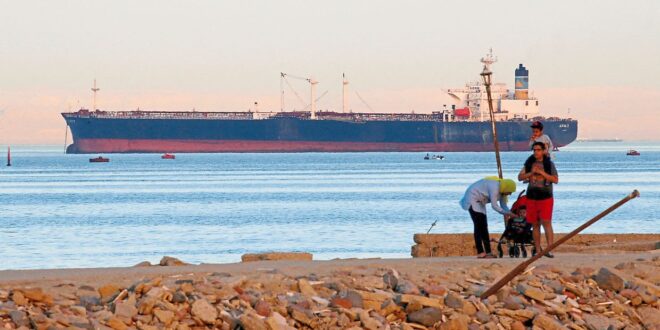PETALING JAYA: Amidst an escalating Red Sea crisis, local shipping associations say those buying goods from Europe may have to fork out more.
This is because shipments will take a longer and safer route across South Africa’s Cape of Good Hope.
However, they said Malaysia will not feel the brunt of things as the country’s imports and exports are mainly within the Asian region.
Shipping Association Malaysia vice-chairman HY Thum said the country would not experience an immediate impact as a high volume of its trade is with Asian countries such as China.
“The shipping cost of conventional items such as grains may not be affected much by the Red Sea situation.
Premium goods imported from Europe, however, could be impacted as the shipments had to be rerouted from the Red Sea.
“This takes up to 14 additional days for the shipping process and the higher cost could impact prices,” he said.
The items affected include wine, cheese and fruits imported from Europe.
Premium automobiles imported from Europe that are completely built-up or completely knocked-down could also see higher prices due to the longer shipping route.
“Malaysian exporters looking to import their goods from Europe can also find it to be more costly due to the extended travel route,” he said.
He said the container segment would be the most affected by the Red Sea crisis.
“If the situation prolongs, it may bring some rate increase to this part of the world, but again, the prices of goods are affected by many things,” said Thum.
Malaysia Shipowners’ Association chairman Mohamed Safwan Othman said the Cape of Good Hope route is a safer alternative. However, it would add about 12,000 nautical miles for vessels sailing from the Straits of Malacca
to Rotterdam.
He said the heightened alert would also hike up insurance premiums for shipowners.
“Both these solutions require an increase in price to transport goods,” said Mohamed Safwan.
While the impact would be more on ordered goods from the West rather than the East, he said the supply chain effect may have an impact on the overall route between both areas.
The situation would also affect the United States and Malaysia’s trading market, with the most traded products being in the electrical and electronics (E&E) sector.
“E&E products imported or exported from Malaysia are going to take a hit with a possible price increase or slower production due to the unavailability of parts,” he said.
This comes as major shipping companies stopped using the Red Sea route and the Suez Canal in December after Yemen’s Houthi group began targeting vessels in response to Israel’s assault on Gaza, according to reports.
The attacks have cut off access to the Suez Canal, the shortest shipping route between Asia and Europe.
It also disrupted world trade, with major shipping companies taking the longer and costlier route around the Cape of Good Hope instead of the Suez Canal.
The Red Sea serves as the entry point for ships using the Suez Canal, which was opened in 1869.
It is one of the busiest canals globally, accounting for about 12% of global trade.
To this, the Federation of Malaysian Manufacturers (FMM) urged Malaysian shipping exporters and importers to refine their business strategies to safeguard supply chains and reduce delays.
Among the strategies proposed are advanced export bookings, shipping lines to give their support and for manufacturers to shift their dependence to the South-East Asian region.
Shipping firms were also called to honour pre-booked freight rates given to Malaysian shippers without adjustment.
“In light of fluctuating freight rates and uncertain transit times, shippers need to prepare container bookings and shipping schedules preferably one month in advance for exports to affected markets.
“For goods that are not time-sensitive, it is advisable to wait until the first few weeks of February 2024 during the Chinese New Year holiday as freight costs are expected to decrease during this period,” FMM president Tan Sri Soh Thian Lai said in a statement.
 BeritaKini.biz Berita Viral Terkini di Malaysia
BeritaKini.biz Berita Viral Terkini di Malaysia





